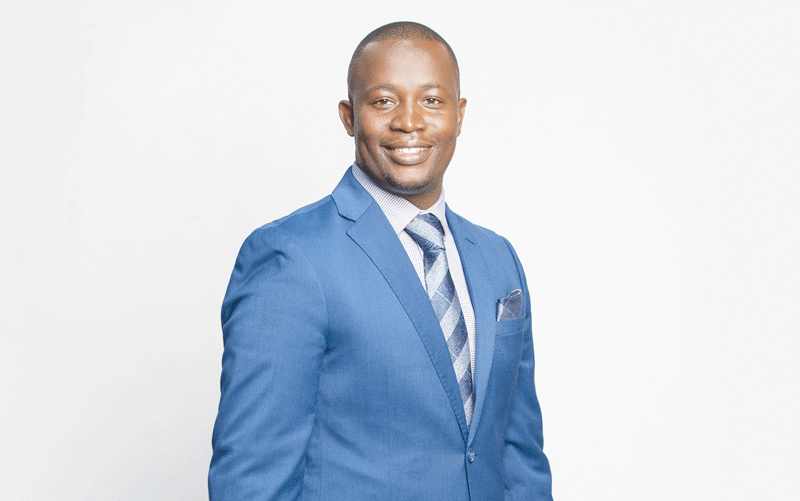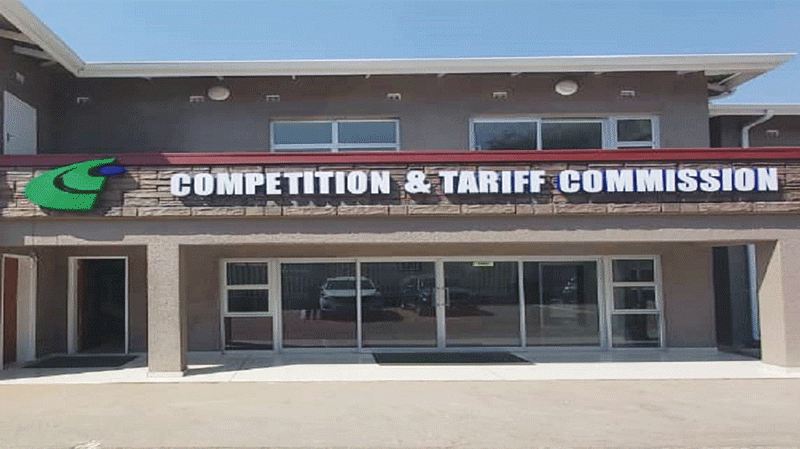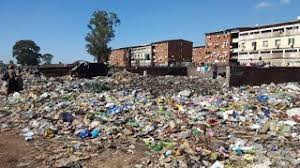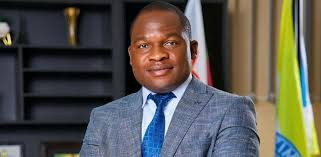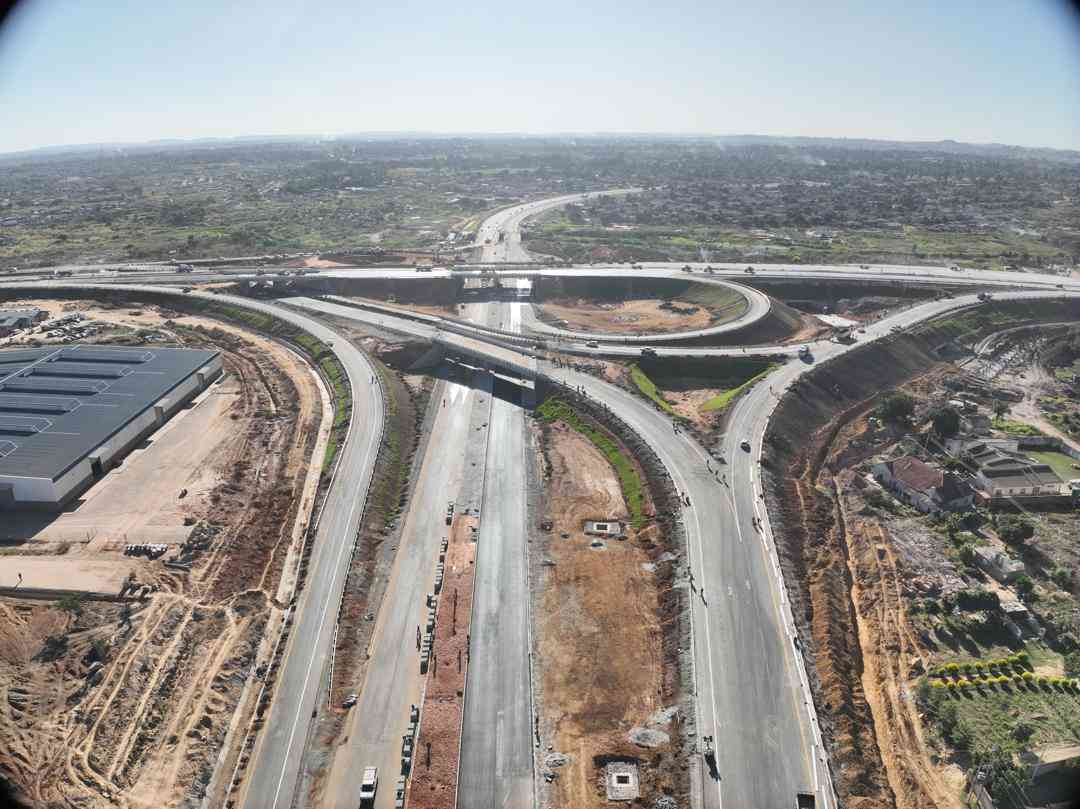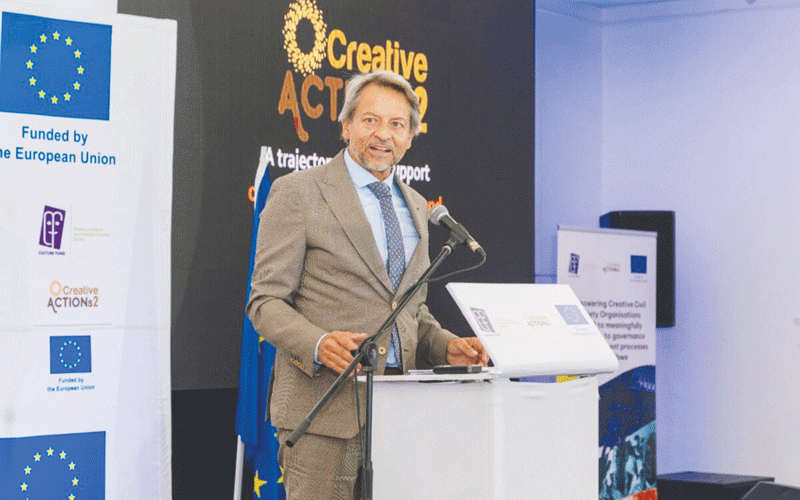
As the European Union (EU) Ambassador to Zimbabwe, Jobst von Kirchmann (JvK), nears the end of his tenure — which began in 2022 — the seasoned diplomat reflects on two transformative years. In a wide-ranging interview with our deputy news editor Tinashe Kairiza (TK), he speaks candidly about the country’s reform journey, revealing that Zimbabwe is now “not very far” from securing a Staff-Monitored-Programme (SMP) with the International Monetary Fund (IMF). This signals a potentially significant shift in the long-stalled re-engagement process. He also shares insights into the EU’s role in Zimbabwe’s debt clearance strategy, the controversial Private Voluntary Organisations Act, and the importance of good governance and land reforms. On a lighter note, von Kirchmann discusses his favourite travel destinations in Zimbabwe and the local dishes he came to love. Below are excerpts of the interview:
TK: Your tenure in Zimbabwe is nearing its end. Tell us about your experiences.
JvK: I am particularly impressed by the people of Zimbabwe. I do not say that lightly. Wherever I went, I always met friendly, educated, and respectful people. It was a pleasure to interact with them. Professionally, one thing that stood out was the private sector — extremely professional and resilient. It is a fantastic country. When I leave, I take beautiful memories with me.
TK: Away from your busy schedule, did you visit some of Zimbabwe’s tourist destinations?
JvK: When I arrived, I took my family to Victoria Falls, Hwange, and the Matopo Hills. We said it was fantastic. Then we went to Kariba and Mana Pools for a game drive. Later, I went with my wife to Binga. We were sitting by the Zambezi saying, “what a great place”. Then we visited Nyanga in the Eastern Highlands. Two weeks ago, I went to Gonarezhou. We saw the famous cliffs, went up through Save Valley, and again said: “what a fantastic country”. Zimbabwe offers such a variety of natural beauty, combined with great people. We have also done many cultural events here. It is for that reason we launched a major programme — Creative Action 2. It is not just for big-name artists, but for smaller ones from all areas of the country.
TK: How many projects did you have?
JvK: We had almost 100 projects. It also shows that Zimbabwe has talent.
TK: Did you try Zimbabwean cuisine?
- CCC urged to push for dialogue over reforms
- A peep into Matenganyika’s artistic closets
- The Bioskop Short Film Competition is back
- Mangwe farmers benefit from agric projects
Keep Reading
JvK: I regularly eat brown and white sadza. I participated in a cooking event — I didn’t win — but I learned how to cook sadza. My favourite is still the roadrunner chicken with brown sadza. It is a simple meal, but wherever I go, I always opt for that.
TK: The European Union is part of Zimbabwe’s debt clearance strategy. What progress has been made so far?
JvK: That is a fantastic process, which is called the Arrears Clearance and Debt Resolution Process. People often think it is all about money. But it is actually much broader than that. It has three tracks: economic reforms, good governance, and land issues. The government used the National Development Strategy 1 (NDS1) to propose a series of reforms in these areas. This has been going on for over two years, and there has been good progress. On the economic side, I believe we are not very far from having a Staff-Monitored-Programme (SMP) with the International Monetary Fund. To get there requires multiple reforms, opening up, and close collaboration with the IMF. I think a lot has already been done in that area.
TK: What has been achieved under the governance matrix?
JvK: In the governance area, the government took the NDS1 indicators and said, “this is what we would like to achieve”, across various fields of good governance. On land, two major issues were tackled: compensation and land tenure. On compensation, there was a historic decision to compensate Bilateral Investment Promotion and Protection Agreement (BIPPA) farmers. That happened around the end of last year/early this year. The first compensation has been paid. I understand a second will follow later this year. That decision was seen globally as a positive step. On land tenure, there is active discussion around making title deeds available.
TK: Tell us what you think about the title deeds programme.
JvK: I personally hope these title deeds will soon become bankable. That could trigger a revolution in agricultural investment. Zimbabwe is an agricultural country. I hope this will work out.
TK: Tell us more about the SMP. I think this is important.
JvK: The SMP has yet to be implemented. It still needs to be signed. The IMF has been in discussion with the government for over a year on the preconditions. To my knowledge, most of those preconditions have been agreed, and only a few remain. But progress is evident. If you look at the IMF’s last public statement, you will see the areas where real progress has been made. Implementation will be the second stage.
TK: You expressed disappointment over the PVO Bill (Which has now been enacted into law).
JvK: The government proposed multiple reforms and indicators. Some have improved over the past few years; others have not. We have seen a decline in the civic space. When the government introduced the PVO Bill, I said it was a pity that it was enacted at that moment — the civic space indicator was already declining. We believe this law will not help to improve that. Electoral reform is another area. So is judicial independence. I understand from our last meetings that the government is working on these areas. They have proposed an action plan to improve where indicators are lagging.
TK: Did you engage with the government?
JvK: Yes, the government has committed to improving civic space indicators. But introducing the PVO Bill may push that indicator down further. The beauty of the arrears clearance and debt resolution process is that it is a platform for engagement and dialogue. Now that the Bill is law, we must look ahead to how it can be implemented fairly for civil society. That is a conversation civil society must have with the government. I hope it is happening — and I understand it will. The key now is ensuring implementation makes this a good Bill.
TK: The EU has also made recommendations regarding Zimbabwe’s electoral processes. Tell us about this.
JvK: The EU has traditionally been invited by the government to observe elections (including) in 2018 and 2023. Our missions produced recommendations. It is up to Zimbabwe, as a sovereign state, to consider those. This falls under the good governance pillar of the debt resolution process. One key theme there is electoral reform. I look forward to the government reviewing all the recommendations — not just ours — because we are not the only ones offering them, but globally.
TK: Do you think Zimbabwe is willing to implement some of the recommendations?
JvK: We do see that willingness through the arrears clearance and debt resolution process. Improving indicators on democratic elections was one of the government’s own proposals. I believe the door is open. In the next few years, I hope the government embraces that challenge.
TK: The EU introduced the US$150 billion Global Gateway Fund to promote trade and investment between Europe and Africa. Tell us more about this fund.
JvK: Global Gateway is our flagship global initiative — over €300 billion worldwide, and €150 billion for Africa. It aims to build connectivity. It also supports sectors like health and education to strengthen EU–Africa ties. One flagship project (in Zimbabwe) is the rehabilitation of Kariba Dam. We invested €113 million. Kariba had a serious issue with its plunge pool — the foundation was being eroded. That work is now complete, contributing significantly to power generation. Another major project is a fibre optic link between the Democratic Republic of Congo and Mozambique, going through Zimbabwe. Feasibility studies are underway. Because of the arrears, Zimbabwe does not currently have access to sovereign lending. That is normal — lenders who were not repaid won’t offer new credit. Once Zimbabwe resolves arrears, this will open access to EU bank financing under the Global Gateway.
TK: Tell us about trade between the EU and Zimbabwe.
JvK: There is enormous potential. Over the past three years, trade between the EU and Zimbabwe increased by 30% to over US$880 million annually. Foreign direct investment also grew by 90% to the same figure. We found common ground with Zimbabwe to grow trade — both through local cooperation and via the free trade agreement we have. It is called the Economic Partnership Agreement (EPA), which allows any Zimbabwean company to export duty- and tariff-free to the European Union. You can export any product. We cannot sell any product to Zimbabwe, but we are happily living with that for the time being. I think the other thing that gave an extra boost is that we organised the first-ever EU-Zimbabwe Business Forum in May this year in the Hyatt-Meikles Hotel. And while we were not sure what to expect, we got at the end over 70 European companies, hundreds of Zimbabwean companies. There was a huge interest because we were also saying it is important to find a local partner, not necessarily to do greenfield investments, but to get people together, to talk. We signed deals for over US$7 million after the seminar, and I hope there is more to come. There is a close follow-up by the Zimbabwe Investment and Development Agency and by our delegation.

